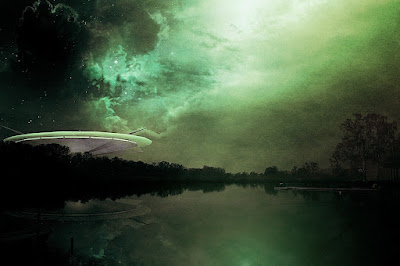For thousands of years, scientists and philosophers have wrestled with these mind-bending questions that challenge human understanding. Through relentless research and discovery, they have uncovered several shocking truths that spark existential crises and shatter our perception of reality. In this article, we’ll reveal 5 of the most mind-melting facts that will leave you questioning everything you thought you knew.
The Illusion of Free Will: Are We Really in Control?
Do you have free will? You’ll likely answer a resounding yes to this question without thought. After all, how can you not have free will when you clicked on this article to read about things that could give you an existential crisis?
Though you may be sure you have free will, how about we peer deeper into why you clicked on this article in the first place? There are hundreds of millions, if not billions, of articles on the internet, and millions are published every hour.
However, you went online and searched for mind-melting facts, existential crisis facts, or reality-shattering facts. You kept scrolling through other articles, reached this, and then clicked the link that brought you here.
Though this may seem like random events, what if they aren’t? What if you searched for facts in the first place because you were bored and remembered a video you watched about existential crisis facts? What if this remembrance led you to type in a specific manner Google, Bing, or even DuckDuckGo used to bring this article right to you? What if you clicked on the link because it reminded you of a favorite video or article you watched somewhere?
With all the seemingly orchestrated yet random events that led you here, you could say that at this point, you were compelled by the sum of your past actions to click on the link and read this article, meaning you have no free will over what you did.
Infographic
In philosophy and science, there is an idea called Determinism, which argues that every single event in the entire universe, from the motion of planets to the actions taken by non-intelligent microbial organisms, is preplanned and will never change. This idea raises a serious conundrum, as it destroys the presence of free will. There are two categories of determinists—hard and soft determinists. Hard determinists believe every single action is preplanned, meaning free will does not exist in this universe. On the other hand, soft determinists believe there might still be room for free will even in a deterministic universe. They argue that free will exists because of the presence of a second option, which a person could have taken in the first place.
Read more about Determinism at Britannica.
Free will has puzzled scientists and philosophers, who have continually argued whether humans act on their own volition without external influence. While it's tempting to think we have absolute free will, that idea is not solid. Humanity exists in a society that operates based on influence. Governments influence their citizens, and parents influence their children, who eventually influence others. So, with this, do you think you have free will?
Infographic
A particular idea in quantum mechanics, if proven true, may break or reshape the concept of choice and free will. The Many-Worlds Interpretation (MWI) of quantum mechanics theorizes that multiple worlds exist in parallel, in the same space and time as ours. What this means is that there may be a world for every single decision you never took. This idea completely removes randomness from existence and proposes a lack of free will, choice, and sentience.
Read more about MWI at the Stanford Encyclopedia of Philosophy.
Test yourself in our Truthoria: Myth or Truth? game!
🤔 Spot the crazy facts from the made-up myths and challenge your friends!
🔥 Play Now
The Dark Mystery of the Universe’s Origin and Our Place Within It
You must have heard about the universe, even if you live under a rock. Many astrophysicists and scientists have argued about the nature of everything in this reality. However, one answer we have never figured out is the universe. Where exactly are we?
According to leading scientific theories, the universe is an ever-expanding entity that houses all the galaxies, stars, quasars, black holes, and planets. It’s so large that figuring out its size is almost impossible. However, a problem arises when we start to think of the position of our universe.
There must be an initial point if we're in an expansive state. So, where in reality is our universe, and where did it start? This question may never be answered by anything in the universe simply because we are an after-product of the expansion, so we can't know where we are.
Infographic
Derived from the Copernican Principle, the Cosmological Principle argues that the universe is homogeneous, meaning it looks the same in all directions. Though not mathematically proven, this principle explains that the universe has no center, so everywhere can be considered a point of expansion. As for where exactly the universe is located, the Big Bang theory, which proposes it all started from a single point, implies that the universe began everywhere, so it's not located anywhere.
Read more about the Cosmological Principle at the University of Oregon's Site.
Are You Real? Exploring the Boundaries Between Dream and Reality
It must seem like such a bizarre question for someone to ask if you're real. Why won’t you be? You're touching your screen, mouse pad, or mouse. But it goes far deeper than your mind can handle.
Have you heard the tale of the man woken up by a lamp?
Infographic
A man in the United States lived a life that seemed almost perfect—until a single, surreal moment unraveled everything he thought was real. While in school, he met a strikingly beautiful woman and fell deeply in love. After months of pursuing her, their connection blossomed into a passionate relationship. Life felt golden. Convinced he had found his soulmate, he married her, and they built a joyful life with two children—a daughter and a son. But one day, as he sat quietly in their home, something strange happened. A simple lamp caught his attention. It looked... wrong—twisted, almost inverted. He couldn’t stop staring. Day after day, his fixation on the lamp grew until, suddenly, it began to expand and distort. Then came the pain—sharp, overwhelming, and inescapable. And suddenly, he woke up. It was all a dream. The love, the family, and the life never happened. He had been in a devastating accident, and everything he cherished had only existed in his mind.
Read the more detailed story at Creepypasta.
If someone could go through an ordeal like this, how are you sure you’re not part of someone’s dream? How are you convinced you're a real person reading this article and not just part of an even weirder being thinking up a character called you? Mind-melting, right?
Are We Truly Alone? The Existential Question of Extraterrestrial Life
Since we gained the ability to peer into the stars, we have always wondered if we were alone. Those on one half of the Fermi Paradox aisle believe it’s impossible to be alone, as the universe is so big there must have been other planets in similar situations as Earth. The other half says we're alone in the vast emptiness of space.
Infographic
The Fermi Paradox, named after physicist Enrico Fermi, arises from the contradiction between the high probability of extraterrestrial life in the universe and the lack of evidence for or contact with such civilizations. It has given rise to multiple ideas and theories that can divided into categories—the major ones are: Category 1: They Exist, But We Haven’t Seen Them Yet (Aliens may exist but are too distant, too advanced, or purposely silent. Our tech might be too limited to detect them, and in a vast galaxy, silence doesn’t mean they’re not there—it may just mean we haven’t searched well enough); Category 2: They Exist, But We Don’t Recognize Them (We may have seen alien signs but mistaken them for natural events. They could be machine-based or so different that we simply don’t recognize them), and Category 3: They Don’t Exist or Are Extremely Rare (Maybe we’re alone. Life, or intelligence, could be extremely rare, or something unknown prevents civilizations from advancing, as the “Great Filter” suggests).
Read more about the Fermi Paradox at The Planetary Society.
An undeniable existential crisis awaits if either answer proves true. If intelligent life exists elsewhere in the universe and we discover it, the foundations of our values could crumble overnight. Religions, cultures, and belief systems—built entirely around a human-centric worldview—would be shaken to their core.
Picture trying to explain to an alien that your planet is special because a deity, unknown to all but your species, created it. That belief would suddenly seem absurd.
If we're alone in the universe, then that could prove that simulation theory may be right, as it would begin to seem more plausible that the universe is all just one giant experiment.
Infographic
Simulation theory is a theory that states we're all living in an extremely powerful computer program operated by beings that are beyond our scope of understanding. It goes beyond the idea of the movie The Matrix, as in this theory's case, those controlling the simulation could be extremely higher-dimensional beings or even beings that exist outside dimensionality itself.
Read more about Simulation Theory at Quantum Zeitgeist.
Dreams and the Human Mind: Unlocking the Secrets of Our Inner Realities
The human mind is a complex entity that scientists have studied for centuries. Even with advancements in neuroscience, it seems we're far from understanding the human mind.
One aspect of our existence that seems unreal is dreaming. Dreams are so weird because they are one of the few aspects of our consciousness that science can't access, as they are private and impossible to manipulate.
Have you ever had a dream and you’re sure you experienced an entirely different life? Or a dream where you went to the past, or a dream where you lived an alternate lifestyle?
Many of us have had dreams like this, and science doesn't know why they happen. Some people may cite supernatural reasons for dreams, but we can’t be sure. They may be glimpses into realities we can’t physically access, or we may be crossing universes to glimpse into the lives of others like us.
So wild, right? The number of possibilities that dreams could be yet, we may never be able to know what’s going on.
Infographic
Some people experience a phenomenon called Lucid Dreaming. It's when someone can control the narrative of their dreams, which, under normal circumstances, should be impossible.
To learn more about Lucid Dreaming and Dreams, check out Healthline and this Qeios Article.
Conclusion
These five mind-melting existential facts are more than just bizarre trivia— they force us to confront the uncomfortable questions we usually avoid. From the illusion of free will to the dark mysteries of the universe, each of these reality-shattering truths challenges what it means to be human.
If your head is spinning and your grip on reality feels a little looser, that’s okay. Asking these big questions is part of understanding our place in the universe, even if the answers remain unknown.
For more terrifying truths, cosmic horrors, and facts that make your brain hurt (in a good way), check out our latest bizarre deep dives on Biobizarre. And remember: the moment you stop questioning reality… you’re already lost.








Comments
Post a Comment
Leave Your Thoughts Here